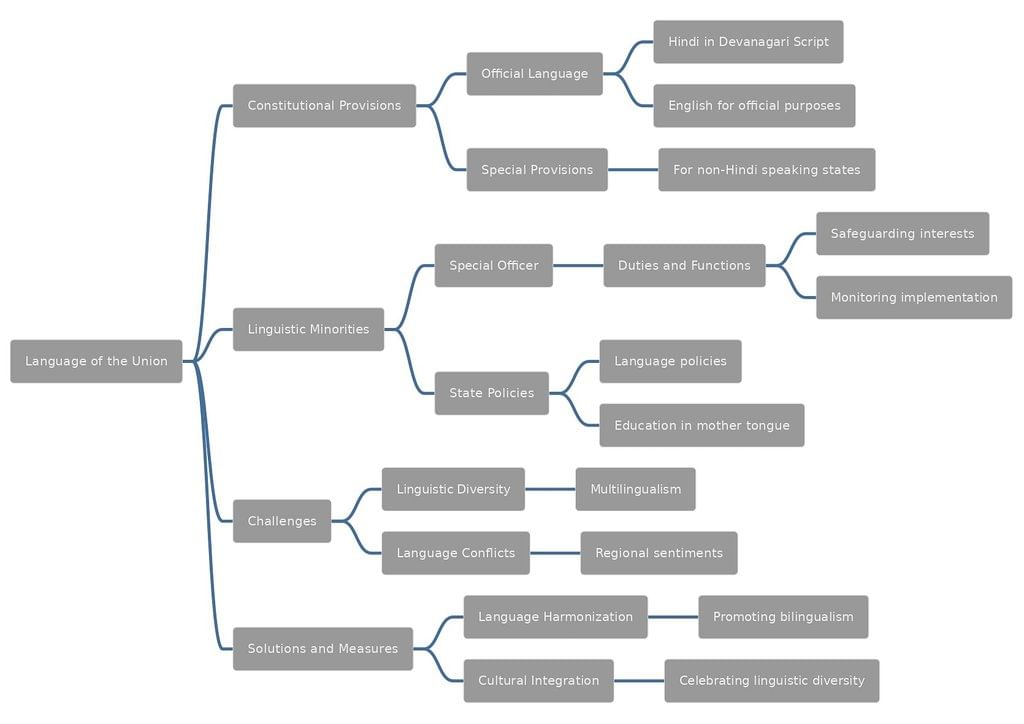UPSC Exam > UPSC Notes > Indian Polity for UPSC CSE > Mind Map: Special Officer for Linguistic Minorities
Mind Map: Special Officer for Linguistic Minorities | Indian Polity for UPSC CSE PDF Download

The document Mind Map: Special Officer for Linguistic Minorities | Indian Polity for UPSC CSE is a part of the UPSC Course Indian Polity for UPSC CSE.
All you need of UPSC at this link: UPSC
|
154 videos|973 docs|260 tests
|
FAQs on Mind Map: Special Officer for Linguistic Minorities - Indian Polity for UPSC CSE
| 1. What is the role of a Special Officer for Linguistic Minorities? |  |
Ans. A Special Officer for Linguistic Minorities is responsible for addressing the concerns and issues faced by linguistic minority communities. They ensure the protection and promotion of linguistic rights, facilitate access to education and government services in minority languages, and work towards linguistic harmony and inclusivity.
| 2. How is a Special Officer for Linguistic Minorities appointed? |  |
Ans. A Special Officer for Linguistic Minorities is typically appointed by the government or relevant authorities. The appointment process may vary depending on the country or region, but it generally involves a selection committee or commission that evaluates candidates based on their qualifications, experience, and understanding of linguistic minority issues.
| 3. What are the key challenges faced by linguistic minorities that the Special Officer addresses? |  |
Ans. The key challenges faced by linguistic minorities vary, but they often include limited access to education in their mother tongue, discrimination, exclusion from public services, and lack of recognition and preservation of their languages. The Special Officer works towards addressing these challenges by advocating for policies and initiatives that promote linguistic diversity and ensure equal rights for linguistic minorities.
| 4. How does the Special Officer collaborate with linguistic minority communities? |  |
Ans. The Special Officer collaborates with linguistic minority communities by engaging in dialogue, consultation, and partnership. They actively listen to the concerns and needs of these communities, develop effective communication channels, and work together to formulate strategies and policies that address their specific requirements. This collaboration helps in ensuring that the rights and interests of linguistic minorities are adequately represented and protected.
| 5. Can linguistic minorities approach the Special Officer for assistance or redressal of grievances? |  |
Ans. Yes, linguistic minorities can approach the Special Officer for assistance or redressal of grievances. The Special Officer acts as a point of contact and support for linguistic minority communities. They provide a platform for individuals and groups to voice their concerns, seek guidance, and request intervention in cases of discrimination or violation of linguistic rights. The Special Officer plays a vital role in ensuring that the concerns of linguistic minorities are heard and addressed appropriately.
Related Searches





















